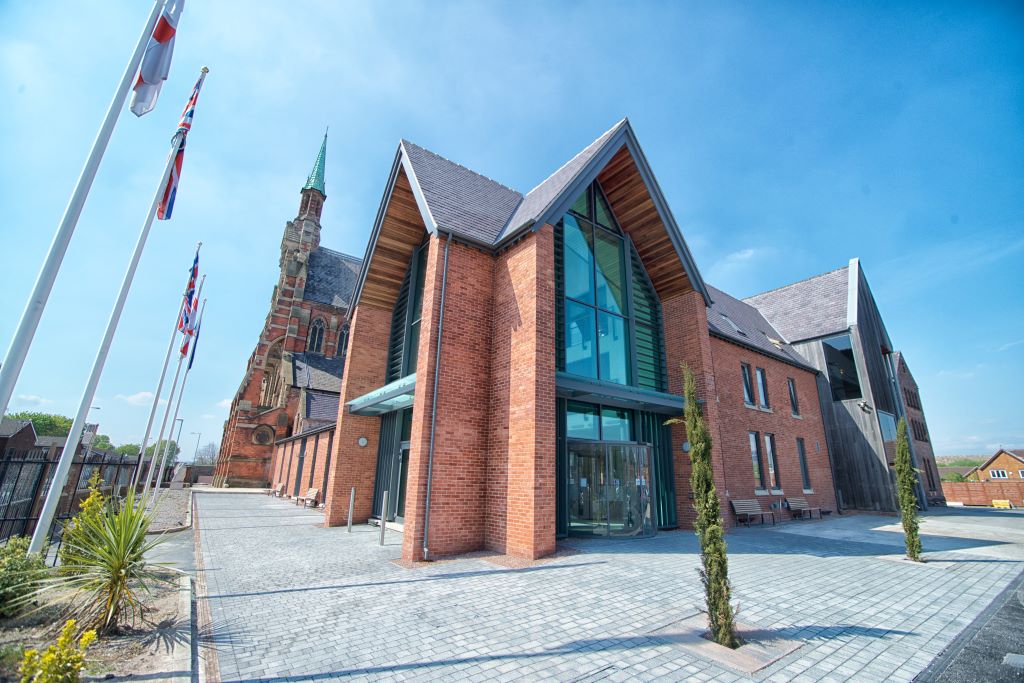Morley College London merges with Kensington and Chelsea College

Morley College London merges with Kensington and Chelsea College to provide lifelong learning for communities
Leading provider of adult education, Morley College London, has today (3 Feb) officially merged with Kensington and Chelsea College (KCC), to become one of the largest providers of lifelong learning in the capital.
The merger is supported by £32 million of investment from the Department for Education, the Ministry of Housing, Communities and Local Government and the Greater London Authority. As part of the merger the North Kensington Centre, which serves the local community affected by the tragedy of the Grenfell Tower fire, will undergo major refurbishment and be protected as a community hub for education and skills.
As a merged college, Morley will provide a sustainable and affordable programme of lifelong learning across three centres – North Kensington, Chelsea and Waterloo – serving more than 17,000 students drawn from all boroughs of London and beyond.
Established in 1889, and with its roots stretching back even further, Morley College London is one of the country’s oldest and largest specialist providers of adult education. As one of only nine Specialist Designated Institutions (SDIs) in the UK, it has increased flexibility in how it utilises funding received to best meet local learning needs.
Morley College London is committed to outstanding learning opportunities in Arts, Culture and Applied Sciences. The merged college will invest in curriculum innovation and learning environments, with increased choices at all levels of study, including progression to advanced and higher study. With learning linked to skills needs and jobs growth in the Creative Industries, the Chelsea Centre will further expand its established profile in Fashion and the Visual Arts. Following renovation, a broad-based range of learning opportunities will be established at the North Kensington Centre aligned to local learning needs featuring enterprise, health and science, tourism, social sciences and IT.
The opportunity to achieve this vision is the result of determined advocacy and activism in the North Kensington Community, led by the Save Wornington College Campaign.
Chair of Governors at Morley College London, Dr Stuart Edwards said:
“We are committed to lifelong community-based learning and are proud to have served our communities for over 130 years. This significant public investment into education and skills will provide enhanced learning opportunities for Londoners.”
“Working together, with our shared values, we will meet the learning needs of a growing number of students within the communities that we serve.”
Dr Andrew Gower, Principal of Morley College London commented:
“Morley is all about the joy of learning and the positive impact successful learning has in bringing out potential, restoring self-belief and creating new opportunity. We believe that the College should be at the heart of the communities it serves and that learning is for everyone, at every age and stage of life.”
A Government spokesperson said:
“This merger will provide local communities, including those tragically affected by the Grenfell Tower fire, with the opportunity to access high quality education and training. The investment we are making will support our drive to level up skills and opportunity so more people can progress and we look forward to hearing more about Morley College’s future plans.”
About Morley College London
Morley’s history dates back to the 1880’s when visionary, Emma Cons, and her supporters were determined to take action and raise the moral and material standards of the district around Waterloo Road. They took over the Royal Victoria Hall (the Old Vic) and provided lectures from eminent scientists in the theatre dressing rooms. Enthusiasm for these ‘penny lectures’ led to the establishment in 1889 of Morley Memorial College for Working Men and Women. In 1920 the College moved to its current site on Westminster Bridge Road.
Over the years the College has attracted staff with outstanding reputations. Renowned composer Gustav Holst was Director of Music at Morley from 1907 until 1924, a post that was later filled by Sir Michael Tippett in 1940. Other high profile figures associated with the College have included composer Ralph Vaughan Williams, writer Virginia Woolf and artist Maggi Hambling.
The future for Morley
Our vision is for ambitions to be inspired and achieved through learning and focuses on learning opportunities, the student experience and ensuring financial sustainability.
Through coherent, student-centred planning of provision delivered at the North Kensington, Chelsea and Waterloo centres, the key features of our strengthened curriculum offer are:
- Demand-led foundation programmes as progression routes to Higher Education and employment available for 16-18 year olds at the North Kensington and Chelsea centres.
- Close alignment to both local skills priorities and the Skills for Londoners priorities, increasing participation, promoting productivity, enhancing quality and ensuring relevance, with specialisation in the creative industries and wide coverage of digital skills.
- Integrated approaches to address barriers to participation that tap into motivations for study, increase confidence in ability, celebrate success, and enable learning to be undertaken flexibly so students can balance life and work, including caring responsibilities.
- Opportunities for progression, digital inclusion and the development of employability skills woven into the student experience and related learning opportunities.
- Parallel provision offered locally at each centre in essential skills (ESOL, English, maths, IT, digital skills and employability) to meet the needs of students who want and need to study close to home.
- Learning opportunities for students with special educational needs and disabilities.
- A significant expansion of learning opportunities at North Kensington, notably in five sector subject areas: (i) health, public services and care; (ii) business, enterprise, administration, finance and law; (iii) leisure, travel and tourism (including customer service and retail); (iv) social sciences; (v) IT and computing. A consolidation of Access to HE programmes in these sector areas as well as an associated range of unaccredited courses will complement current successful provision at the North Kensington centre in the visual arts, music and media, and garden and landscape design.
- A deepening of specialism in the creative arts and industries at the Chelsea centre, building on successful provision, with a realignment of curriculum offer that enables introduction of new, industry-relevant, advanced and higher-level diplomas in areas such as digital publishing, marketing and design.











Responses